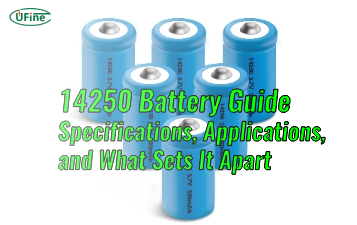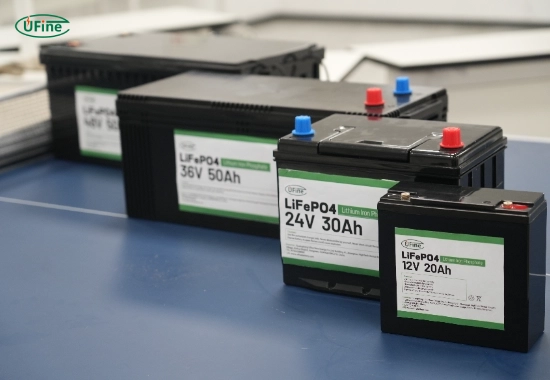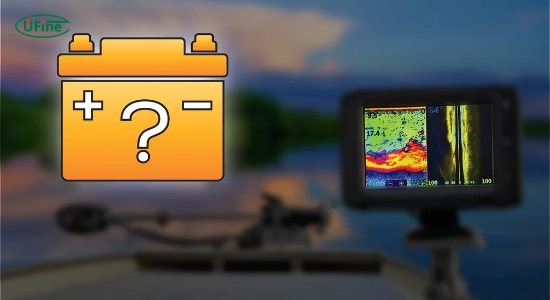The fish locator battery plays a pivotal role in enhancing your fishing experience. A reliable battery ensures your fish finder operates efficiently, allowing you to locate fish and navigate underwater structures easily. This guide will explore everything you need to know about choosing the best battery for your fish locator, from understanding battery types to calculating the right capacity.
Part 1. What is a fish locator battery?
A fish locator battery is a power source that supplies energy to fish finders and other marine electronics. These batteries come in various types and capacities, tailored to meet the demands of different devices and fishing conditions. The right battery powers your fish locator and affects its performance and longevity. Understanding the characteristics of fish locator batteries is crucial for ensuring you have a dependable power source during your fishing trips.
Part 2. Why is battery choice important for fish locators?
Selecting the right battery for your fish locator is essential for several reasons:
- Performance: A high-quality battery ensures consistent power delivery, allowing your fish finder to function optimally.
- Runtime: The correct battery capacity will dictate how long you can use your device before recharging.
- Device Safety: Using an incompatible or low-quality battery can lead to malfunctions or even damage to your fish locator.
By investing time in choosing the right fish locator battery, you can enhance your fishing experience significantly.
Part 3. Types of batteries suitable for fish locators
When selecting a battery for your fish locator, consider the following types:
- Lead-Acid Batteries: These are traditional batteries known for their reliability and affordability. They come in two types:
- Flooded Lead-Acid: Requires maintenance and regular checks.
- AGM (Absorbent Glass Mat): Maintenance-free, more durable, and typically more expensive.
- Lithium-Ion Batteries: These batteries are lightweight, have a longer lifespan, and provide consistent power output. Although they are generally more expensive, their performance makes them popular among serious anglers.
- Nickel-Metal Hydride (NiMH): Less common than lead-acid or lithium-ion options, NiMH batteries can be used for specific fish locators. They are more environmentally friendly but may offer different performance than other types.
Part 4. How to determine the right fish locator battery capacity?
Battery capacity is crucial for ensuring your fish locator operates effectively throughout your fishing trip. Capacity is measured in amp-hours (Ah), which indicates how much energy a battery can store and deliver over time. To determine the right capacity for your fish locator:
- Check the Power Requirements: Look at the specifications of your fish locator to find its power consumption in watts.
- Calculate Amp-Hours Needed: Use this formula:
Amp-Hours (Ah) = Watts / Voltage × Hours of Use
- Consider Additional Devices: If you plan to use other devices (like GPS or lights), factor in their power consumption.
Understanding these calculations will help ensure you select a battery with adequate capacity.
Part 5. What battery voltage should I choose?
The battery’s voltage is another critical factor when selecting a power source for your fish locator. Most fish locators operate on either 12V or 24V systems. Here’s how to choose:
- 12V Systems: These are commonly used for smaller boats and portable units. They are versatile and compatible with many devices, making them an excellent choice for casual anglers.
- 24V Systems: Ideal for larger boats or when using multiple devices simultaneously, 24V systems provide more power and can support higher loads without straining the battery.
When deciding on voltage, consider the following:
- Device Compatibility: Always ensure that the voltage matches the requirements of your fish locator to avoid damage.
- Usage Scenario: Opting for a 24V system may provide better performance if you frequently use multiple electronics while fishing while fishing.
- Weight Considerations: Higher voltage systems may require larger batteries, which could affect boat weight distribution.
Choosing the right voltage will ultimately depend on your fishing needs and equipment compatibility.
Part 6. How long will my battery last?
The lifespan of your battery depends on several factors:
- Battery Type: Lithium-ion batteries generally last longer than lead-acid batteries due to their superior chemistry and design.
- Usage Patterns: Continuous use drains batteries faster than intermittent use; thus, how often you use your device matters.
- Charging Habits: Proper charging techniques can significantly extend the life of your battery. Avoid deep discharges whenever possible, as this can damage lead-acid batteries over time.
Understanding these factors will help you manage expectations regarding how long you can rely on your chosen battery during fishing trips.
Part 7. Fish locator battery maintenance tips for longevity
To ensure that your fish locator battery lasts as long as possible, follow these maintenance tips:
- Regular Checks: Inspect connections and terminals regularly for corrosion or wear.
- Cleanliness: Keep the battery clean and free from debris that could affect its performance.
- Proper Storage: Store batteries in a cool, dry place when not in use to prevent degradation over time.
By implementing these simple maintenance practices, you can maximize the lifespan of your fish locator battery.
Part 8. How to charge your battery correctly?
Charging methods vary by battery type:
- Lead-Acid Batteries: Use a smart charger that prevents overcharging and monitors charge levels.
- Lithium-Ion Batteries: Follow manufacturer guidelines regarding charging cycles; avoid deep discharges as they can shorten lifespan significantly.
Always monitor charging times closely to prevent any potential damage to the battery while ensuring optimal performance during use.
Part 9. FAQs
-
What type of battery is best for my fish locator?
The best type depends on individual needs; however, lithium-ion batteries are often recommended due to their lightweight nature and long-lasting performance. -
How do I know how many amp-hours I need?
Calculate based on your device’s wattage and how long you plan to use it using this formula:
Amp-Hours (Ah) = Watts / Voltage × Hours of Use
-
Can I use my car battery for my fish locator?
While it is technically possible, it’s not recommended due to size and weight considerations; specialized marine batteries are designed specifically for this purpose. -
How often should I replace my battery?
Typically, lead-acid batteries last about 3-5 years under normal usage conditions, while lithium-ion batteries can last up to 10 years with proper care and maintenance. -
Is it safe to leave my battery charging overnight?
It depends on the type; always use a smart charger that prevents overcharging, especially with lead-acid batteries, which can be sensitive if left unattended during charging cycles.
Related Tags:
More Articles

14250 Battery Guide: Specifications, Applications, and What Sets It Apart
The 14250 battery offers high energy density and reliability. Explore its specs, types, advantages, applications, and safety best practices.
The Role of Lithium Hexafluorophosphate and Sodium Chloride in Battery Electrolytes
LiPF₆ and NaCl are shaping battery tech. Explore their roles, benefits, and future impact on lithium-ion and sodium-ion energy storage.
The Best Way to Store Batteries
Discover the best ways to store batteries for longevity and safety! Learn tips to keep them organized and prevent damage. Read now!
Lipo Battery Storage Voltage Explained Simply
Lipo battery storage voltage is key for battery life. Storing at 3.7V–3.85V per cell keeps the ions in a good state, minimizing wear. Read now!
Decoding Lithium Battery Cost: What Drives Pricing?
Lithium battery costs impact many industries. This in-depth pricing analysis explores key factors, price trends, and the future outlook.





